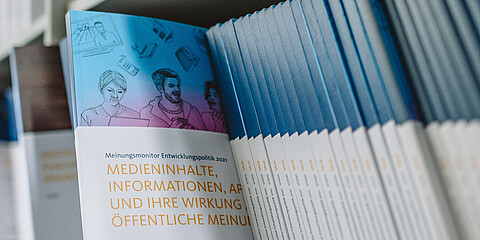Russia launched its war of aggression against Ukraine in February 2022. Global prices for energy and foodstuffs rose in part dramatically. Against this backdrop, the German Institute for Development Evaluation (DEval) has explored three questions based on a representative
survey conducted by the Development Engagement Lab (DEL) in October 2022:
1. How does public perception of the state of the German economy correlate with approval for DC?
2. What attitudes do people have towards various development policy measures in response to the war against Ukraine?
3. How does agreement to such measures differ according to individualsʼ political orientation and assessment of the general state of the economy, and their own, personal economic situation and income?
Bibliographical information

